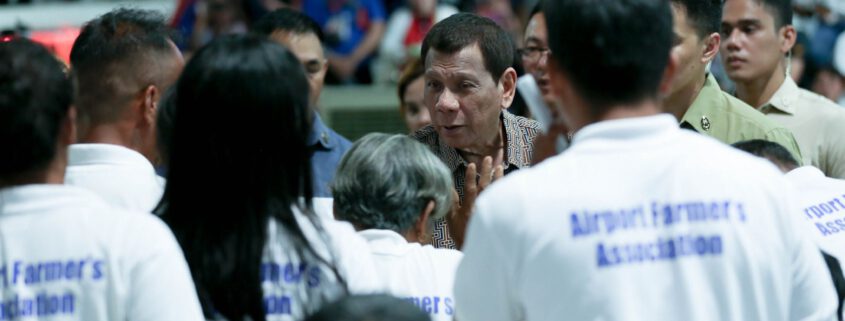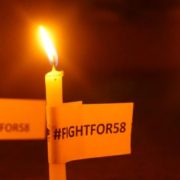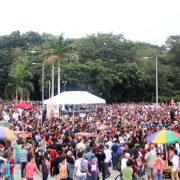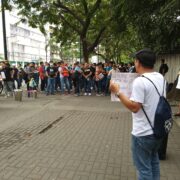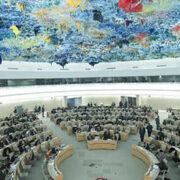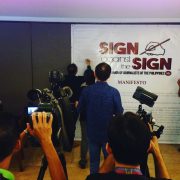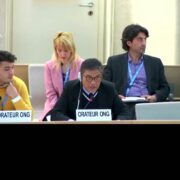Bayan: Problems are Duterte’s real legacy
Bagong Alyansang Makabayan (Bayan) contradicted attempts by the Palace communications team to picture Rodrigo Duterte to be a succesful president, painting his administration to be very problematic for the Filipino people instead.
Reacting to the ongoing #DuterteLegacy campaign launched by the Presidential Communications Operations Office (PCOO), Bayan secretary general Renato Reyes Jr. said 12 major problems may already be listed as the president’s real legacy halfway through Duterte’s government.
Reyes wrote, “We are past the halfway mark of the Duterte regime and Palace propagandists are now trumpeting the president’s so called ‘legacy’. This early on, we can safely say what the legacy of this regime is.”
Duterte’s real legacy, according to Reyes, are the following:
- Mass murder. Thousands have been killed in the so-called war on drugs, yet the drug problem persists, the police exposed as corrupt, thus rendering the drug war an abject failure;
- Destruction of agriculture. Philippine agriculture has been ruined because of the liberalization of rice importation. The Philippines, an agricultural country, is now the world’s biggest importer or rice;
- Surrender of sovereignty. Our sovereign rights in the West Philippine Sea continue to be violated by China with the failure of the regime to uphold the ruling of the Permanent Court of Arbitration in the West Philippine Sea to counter China’s illegal activities;
- Normalization of Martial Law. For more than two years, Martial Law was imposed in the entire Mindanao, resulting in widespread human rights violations especially in rural communities. Despite Martial Law, Marawi remains in ruins since no real rehabilitation has taken place;
- Militarized bureaucracy. The civilian bureaucracy has been militarized and geared towards counter-insurgency, again resulting in massive human rights violations. Duterte’s Executive Order 70 (ordering heightened counter-insurgency operations nationwide) has given way to de facto Martial Law;
- Weaponization of the law. The law has been weaponized to target critics of the administration. Trumped-up charges against activists, media, church leaders, the Opposition, lawyers, and other critics have become so rampant. Mass arrests have recently taken place.
- ENDO pa rin. Contractualization remains rampant despite the promise of the President to end it. He also vetoed a watered-down version of a security of tenure law. Labor export remains the principal safety valve of the economy;
- More taxes. The TRAIN (Tax Reform for Acceleration and Inclusion) law and its regime of new taxes that burden the poor is part of Duterte’s anti-people legacy;
- Economic slowdown. The slowest GDP (Gross Domestic Product) growth rate in eight years was registered under the Duterte regime. The much-touted “Build Build Build” program proved to be a dud. The slowdown of domestic agriculture proved to be the disastrous result of neoliberal policies;
- Worsening corruption. Bureaucratic corruption remains and even State security forces have been exposed as being the most corrupt. Transparency International gave the Philippines its lowest rating since 2012, ranking the Philippines as 113th out of 180 countries. Duterte cronies like Dennis Uy have been favored to get strategic industries and utilities;
- Marcos restoration. A hero’s burial for the dictator Marcos and a clear pathway for their return to Malacañang; and
- Tyranny. Undermining checks and balance in government. Like a true dictator, Duterte controlled Congress, removed a sitting Chief Justice, and concentrated power with the Executive. Things can take a turn for the worse if Charter change pushes through.
Aside from an agressive social media campaign, PCOO spokespersons have appeared in television and radio programs popularizing the #DuterteLegacy campaign.
It hit a snag however when PCOO undersecretary Lorraine Badoy was reprimanded by hosts of the TV5 program “The Chiefs” for taking the occassion to Red-bait an economic analyst instead, unleashing a flood of criticisms online. # (Raymund B. Villanueva)

